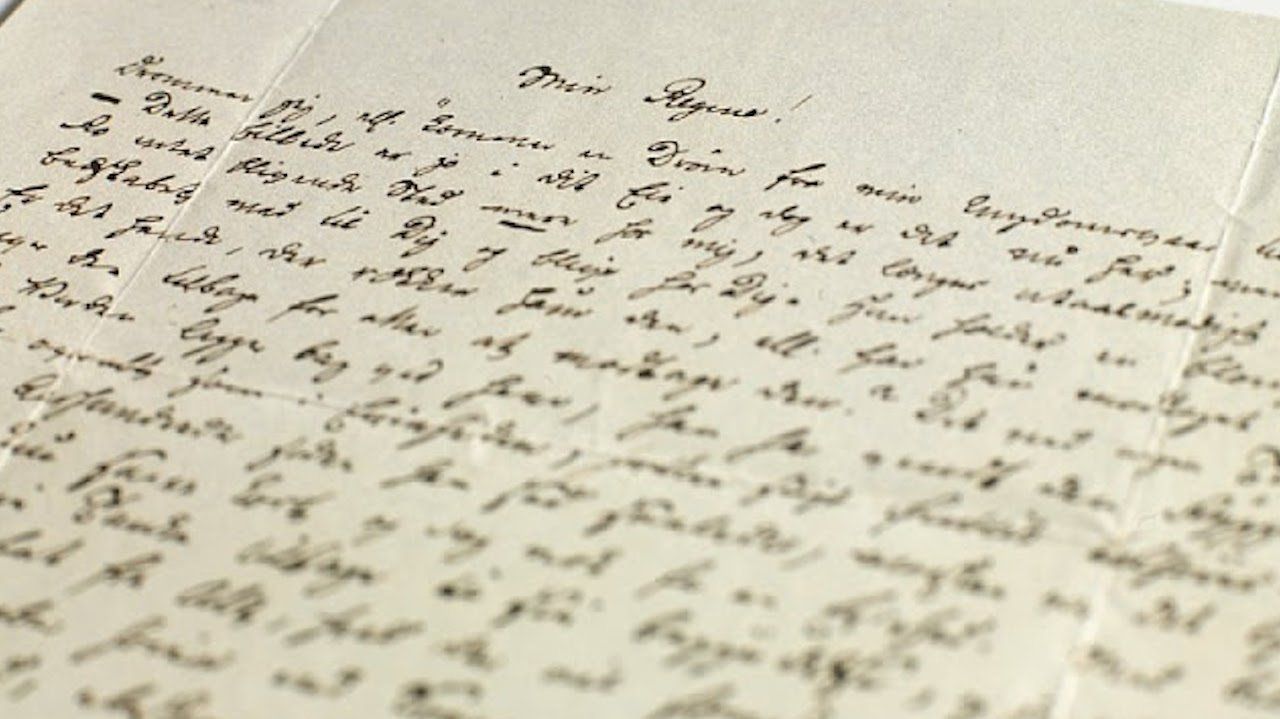The Life and Prayers of Kierkegaard
by Erin Doom
Feast of St Germanus, Patriarch of Constantinople
Anno Domini 2020, May 12

Søren did not make his name on the merits of a dynamic public prayer life. In his own time, the existentialist philosopher rambled for hours through the charming streets and hidden passages of Copenhagen, stopping to talk with random folks along the way. Everyone in town recognized the spindly, comical figure whose tousled hair stuck up nearly six inches from his forehead.
[…] out to provoke the bored religious folks around him, Søren became a kind of literary prankster. He wrote aesthetic, philosophical and polemical volumes, journal essays and popular newspaper articles. Leafing through his collected works, the philosopher in me wanders along, playing the philosophy game. It does not take long to get lost in Søren’s complex writings on subjective truth, objective truth, dread, existence, irony. My attention fails me.
Then Søren surprises with a jab. Don’t just be a Christian, he says, as if “Christian” is some assigned label that you are simply stuck with forever, an identity that means nothing to you. No, take all of your life to become a Christian: Choose, again and again with each new day, to be a real self, an authentic person in relation to God. Abandon your calculated safety for a reckless, wholehearted life of faith in Christ. Continue to become. Grow. Risk. Take that radical leap of faith right now.
once Søren experienced the faith that reached beyond abstract knowledge, it was the practice of prayer that kindled his inner transformation. “The function of prayer is not to influence God,” he said, “but rather to change the nature of the one who prays.” Growing into a fervent person of prayer with living faith as his aim, Søren’s daily encounters with the eternal became as essential to him as breathing.
he never became a pastor or had any other kind of job. He never got married or had children. Other than a few visits to Berlin, then the capital of philosophy, and one trip to Sweden, Kierkegaard never left Denmark. He took no interest in politics. In 1848, the liberal revolutions sweeping Europe reached Denmark, as protests forced the king to promise a new constitution and parliament; but Kierkegaard was indifferent. “So the king flees—and so there is a republic,” he wrote in his journal that year. “Piffle.”
What he did instead was write. Until his death, in 1855, at the age of forty-two, Kierkegaard lived off his inheritance and produced a stream of unclassifiable books—hybrids of philosophy, autobiography, fiction, and sermon. Advancing deeper and deeper into the experience of suffering, he emerged with a profoundly new way of thinking about human existence. The dark exigency of Kierkegaard’s books, which he sometimes published two or even four at a time, is plain from their titles: Fear and Trembling, The Concept of Anxiety, The Sickness Unto Death.
In that last book, which appeared in 1849, Kierkegaard offers an uncompromising diagnosis of the human condition. "There is not a single human being who does not despair at least a little, in whose innermost being there does not dwell an uneasiness, an unquiet, a discordance, an anxiety in the face of an unknown something," he writes. If you don’t think you are in despair, you are lying to yourself, which is an even worse form of despair. Only by acknowledging our condition, he says, can we begin to understand that the true name of despair is sin, defiance of God. We are freed from it only when we accept that "a human self is under an obligation to obey God—in its every secret desire and thought."
You who are unchangeable, whom nothing changes! You who are unchangeable in love, precisely for our welfare, not submitting to any change: may we too will our welfare, submitting ourselves to the discipline of Your unchangeableness, so that we may in unconditional obedience find our rest and remain at rest in Your unchangeableness. You are not like us; if we are to preserve only some degree of constancy, we must not permit ourselves too much to be moved, nor by too many things. You on the contrary are moved, and moved in infinite love, by all things. Even that which we humans beings call an insignificant trifle, and pass by unmoved, the need of a sparrow, even this moved You; and what we so often scarcely notice, a human sigh, this moves You, You who are unchangeable! You who in infinite love do submit to be moved, may this our prayer also move You to add Your blessing, in order that there may be brought about such a change in us who pray as to bring us into conformity with Your unchangeable will, You who are unchangeable!
Contribute to Cultural Renewal by Sharing on Your Preferred Platform
In an isolating secularized culture where the Church's voice is muffled through her many divisions, Christians need all the help they can get to strengthen their faith in God and love toward their neighbor. Eighth Day Institute offers hope to all Christians through our adherence to the Nicene faith, our ecumenical dialogues of love and truth, and our many events and publications to strengthen faith, grow in wisdom, and foster Christian friendships of love. Will you join us in our efforts to renew soul & city? Donate today and join the community of Eighth Day Members who are working together to renew culture through faith & learning.









